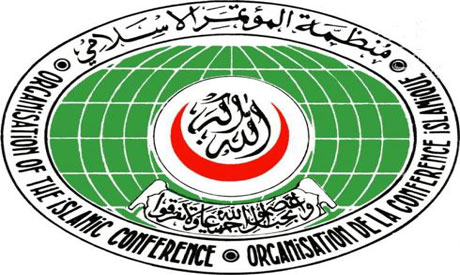ASSIUT: In conservative Egyptian villages where tribal and familial affiliations reign supreme, parliamentary candidates can no longer rely on the former ruling party’s blessing to carry them to victory.
In the agricultural heartland of Assiut, a governorate 320 kilometers south of Cairo, former members of the now-banned National Democratic Party are finding themselves in the unfamiliar position of having to earn the vote.
"It’s all about your relations with people," said Mohamed Fawaz, a third-generation village leader in Nawawra who renounced the NDP and joined the Conservative Party after the uprising that swept Hosni Mubarak from power in February.
Fawaz, who spoke from a compound where men from the village meet to smoke water pipes and drink tea, was a member of parliament with the NDP and had the group’s support last year. This year he’s campaigning with his own money as he and other longtime powerbrokers find themselves caught between hatred for the former regime and the reality that all politics are local.
Nawawra resident Ashraf Fawzi said he voted for the Conservative Party because of Fawaz’s reputation.
"I gave my voice to the party because of Mohamed Fawaz, because he has provided a lot of services to the residents here," Fawzi said, pointing to land that Fawaz donated to the community to build a sports center.
Fawaz helped settle dangerous disputes between families when the situation threatened to escalate, Fawzi said. On election day, he convinced armed supporters of another candidate to leave four polling stations they had surrounded at gunpoint.
As village leader, Fawaz owns guns and cars, both symbols of power and wealth in this impoverished village, and his home is surrounded by a concrete security wall.
While Fawaz said he isn’t proud of his history with the NDP, he claims that he had to join the party to give his village a voice in parliament.
The NDP swept successive parliamentary elections for nearly 30 years through blatant vote-rigging and fraud, including a victory of nearly 90 percent of seats in a November vote, two months before the start of the 18-day uprising that forced Mubarak to step down and hand power to a military council.
Candidates with NDP backing were virtually assured victory and the party was widely despised because of its links to Mubarak, his son Gamal and the coterie of businessmen widely seen by Egyptians as greedy, uncaring and corrupt.
The party has been dissolved, and many of its former members have joined the Conservative Party and at least four other groups, raising fear among activists that remnants of the former regime, known in Arabic as "feloul," could try to reassert themselves into political life even as the ruling military refuses to give up power immediately.
Enjy Hamdy, a member of the April 6 Youth Movement that was credited with partly spearheading Egypt’s uprising, wanted all former NDP members barred from running in elections, saying they cannot wash their hands of decades of misrule.
"They know they took part in all of this corruption and rigged elections that Egyptians paid for with their lives," she said. "How will they, today, be my partner in building the country? A hand that used to destroy the country cannot be the hand that helps rebuild the country."
April joined other activist groups in creating a "feloul" blacklist, spanning Egypt’s 27 governorates. The group helped create a website called "Catch a Remnant," which lists by governorate the most well-known of the former party’s members, and those who served as NDP in parliament.
Egypt’s Supreme Administrative Court, however, ruled last month that ex-NDP members could not be barred from running in the parliamentary elections.
The head of the Conservative Party in Assiut, Hamdy Madroub, says democracy means everyone should have a chance.
"How are the youth of the revolution speaking on behalf of Egypt? You are not Egypt," he said. "Anyone who is corrupt, we are against and this is an issue for the courts, but there are respectable folks who know the people and have a right to be in parliament."
Far removed from the politics of Tahrir Square in Cairo, the epicenter of Egypt’s protests, most of the 500,000 eligible voters in Assiut’s southern district are primarily concerned with survival.
The Conservative Party now finds itself competing against the Muslim Brotherhood, which was banned under Mubarak but whose charitable work and religious overtures have long struck a chord in impoverished rural towns.
Free and fair parliamentary elections signal a new Egypt, but the top need of the Assiut village of Elwan remains bread, followed by a sewage system, paved roads, better schools and hospitals, and jobs, Sheikh Abdel-Aal said.
The mosque preacher said he plans to cast his vote for the Brotherhood.
"You can’t tell one party from the next, but the Muslim Brotherhood are known," Sheikh Abdel-Aal said. "’Feloul’ are fully rejected because of what Mubarak did."


